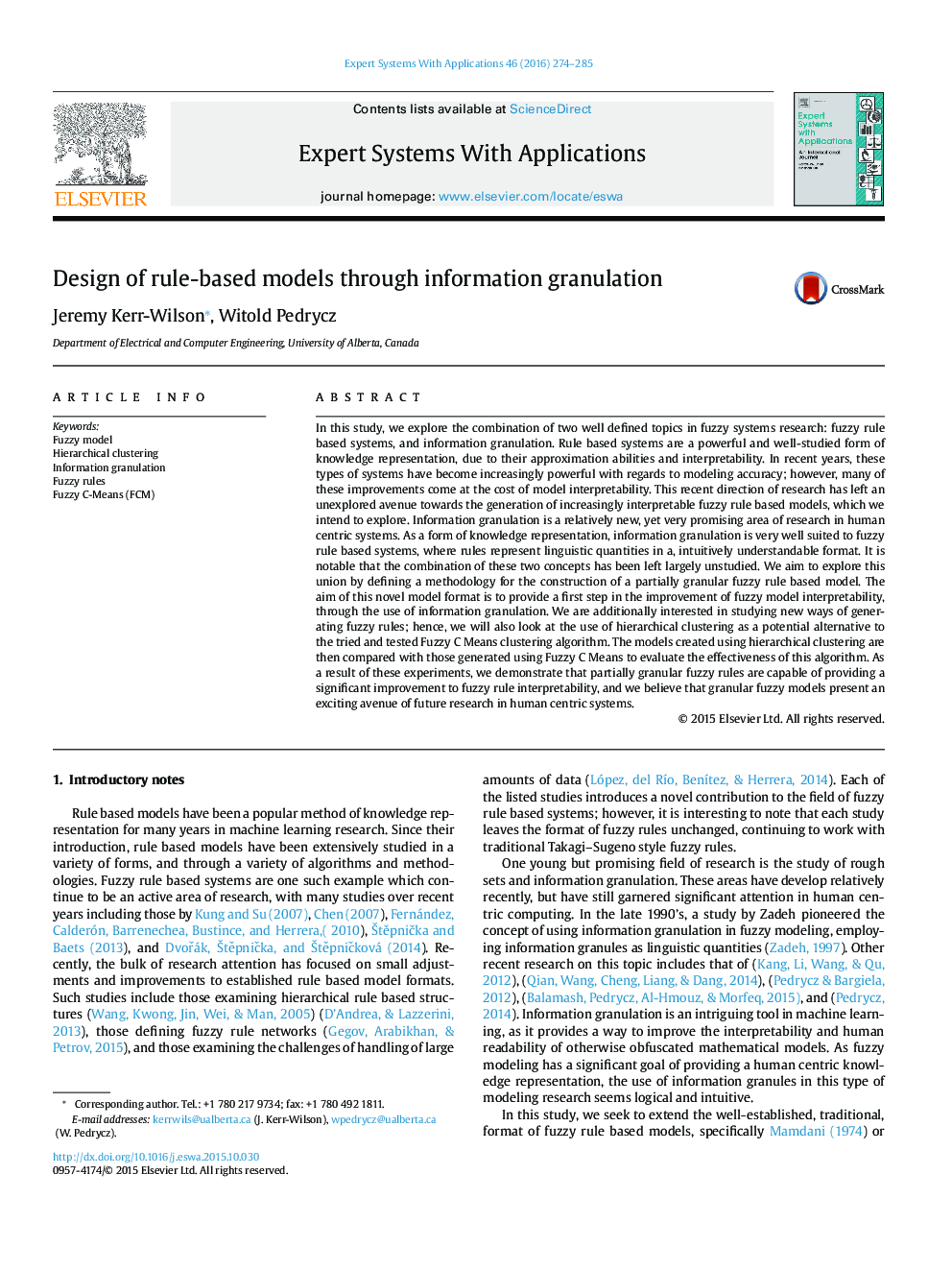| کد مقاله | کد نشریه | سال انتشار | مقاله انگلیسی | نسخه تمام متن |
|---|---|---|---|---|
| 382222 | 660745 | 2016 | 12 صفحه PDF | دانلود رایگان |
• Exploration of Fuzzy Rule generation using hierarchical clustering
• Development of granular rule conclusions with real valued intervals
• Definition of performance metrics for granular models for the assessment of model performance
• Demonstration of the effectiveness of granular rule conclusions for modeling of real world data
• Comparison of hierarchical methods to Fuzzy C-Means when generating rule based models
In this study, we explore the combination of two well defined topics in fuzzy systems research: fuzzy rule based systems, and information granulation. Rule based systems are a powerful and well-studied form of knowledge representation, due to their approximation abilities and interpretability. In recent years, these types of systems have become increasingly powerful with regards to modeling accuracy; however, many of these improvements come at the cost of model interpretability. This recent direction of research has left an unexplored avenue towards the generation of increasingly interpretable fuzzy rule based models, which we intend to explore. Information granulation is a relatively new, yet very promising area of research in human centric systems. As a form of knowledge representation, information granulation is very well suited to fuzzy rule based systems, where rules represent linguistic quantities in a, intuitively understandable format. It is notable that the combination of these two concepts has been left largely unstudied. We aim to explore this union by defining a methodology for the construction of a partially granular fuzzy rule based model. The aim of this novel model format is to provide a first step in the improvement of fuzzy model interpretability, through the use of information granulation. We are additionally interested in studying new ways of generating fuzzy rules; hence, we will also look at the use of hierarchical clustering as a potential alternative to the tried and tested Fuzzy C Means clustering algorithm. The models created using hierarchical clustering are then compared with those generated using Fuzzy C Means to evaluate the effectiveness of this algorithm. As a result of these experiments, we demonstrate that partially granular fuzzy rules are capable of providing a significant improvement to fuzzy rule interpretability, and we believe that granular fuzzy models present an exciting avenue of future research in human centric systems.
Journal: Expert Systems with Applications - Volume 46, 15 March 2016, Pages 274–285
